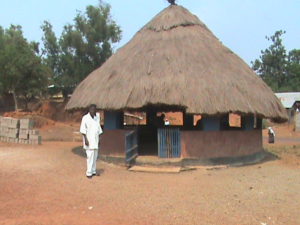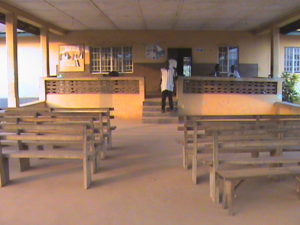This project studied how justice sector aid address the relationship between local legal orders and human rights in sub-Saharan Africa.
Supervision: Prof. Dr. Eva Brems
Researchers: Giselle Corradi , Martien Schotsmans
Sponsored by BELSPO (2008-2011)
 This research explored the connection between the policies and interventions of development actors seeking to advance human rights within local legal orders in sub-Saharan Africa and important insights generated by socio-legal scholars on how to go about these challenges. On the one hand, it focused on how international development actors address the relationship between local legal orders and human rights in the context of justice sector aid in sub-Saharan Africa. What kind of policies and interventions do they support for advancing human rights within local justice processes? On the other hand, it examined how socio-legal theory relates to human rights aid in this area. What theoretical insights are of relevance to the practice of development actors in the justice sector? Why are they relevant and how can they be applied?
This research explored the connection between the policies and interventions of development actors seeking to advance human rights within local legal orders in sub-Saharan Africa and important insights generated by socio-legal scholars on how to go about these challenges. On the one hand, it focused on how international development actors address the relationship between local legal orders and human rights in the context of justice sector aid in sub-Saharan Africa. What kind of policies and interventions do they support for advancing human rights within local justice processes? On the other hand, it examined how socio-legal theory relates to human rights aid in this area. What theoretical insights are of relevance to the practice of development actors in the justice sector? Why are they relevant and how can they be applied?
In order to study these questions, the project relied on multi-sited qualitative research methods, including an extensive amount of socio-legal literature on legal pluralism and human rights, as well as of grey literature produced by international development actors on this and related topics. In addition, it included case studies on Sierra Leone and Mozambique, where justice sector stakeholders were interviewed and the implementation of a number of interventions was observed.
 Based on this, four issues were identified as crucial, i.e. the kind of justice providers targeted by interventions, the way in which human rights are promoted within forums that rely on mediation as compared to those that rely on adjudication, whether interventions reflect an engagement with local knowledge, and the need to approach human rights’ cross-contextual implementation in a critical way.
Based on this, four issues were identified as crucial, i.e. the kind of justice providers targeted by interventions, the way in which human rights are promoted within forums that rely on mediation as compared to those that rely on adjudication, whether interventions reflect an engagement with local knowledge, and the need to approach human rights’ cross-contextual implementation in a critical way.